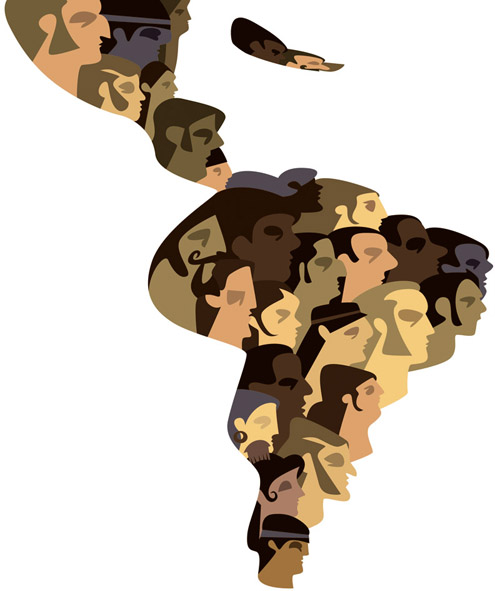"Lost in Frustration: the Latin American Scholar in the U.S. Classroom"
Published25 Nov 2014

Imagem: Site Africa is a Country
Lina Martínez Hernández , doutoranda de Hispanic Studies na Universidade de Pennsylvania, tem como temas de investigação Literatura Caribenha e Hispânica, queer latino-americano e as tradições intelectuais latino-americanas. No site Africasacountry escreve sobre a relação entre a academia americana e os Estudos Hispânicos.
Henríquez Ureña’s main concerns shaped the debates regarding the region: is there a unique Latin American expression? Is Latin America always defined by foreign influences? Is there an alternative to the oscillation between dogmatic nationalisms and the adoption of European or U.S. political and cultural models?
The debate changed radically during the second half of the 20th century. The Cuban revolution, the international relevance of authors from the Latin American boom–Gabriel García Márquez, Mario Vargas Llosa, and Carlos Fuentes, among others–and the dictatorships in the Southern Cone transformed the questions regarding what Latin America was and who was “qualified” to talk about it.
Ángel Rama (1926-1983), an exiled Uruguayan writer and cultural critic, was central to this rhetorical and political shift. Rama taught in Latin America and in the U.S. academy. He brought Jean Paul Sartre’s model of the “committed intellectual” to the fore in Latin American discussions. This meant asking what is the role of scholars and intellectuals in the material and political realities of Latin American nations. Asking this from U.S. classrooms represented a particular challenge, one that intensified the frustration that endures to this day.
If literature and artistic expressions are now understood as part of an ideological practice extended throughout the region–often times denouncing the impact of U.S. intervention in Latin America–, how can Latin American scholars in the U.S. mediate the inherent contradictions that arise between their political filiations and their institutional commitments? For Rama, his fight against the U.S. migration service heightened this dilemma, after authorities denied him a visa to continue teaching at the University of Maryland. This remains a common problem faced by Latin American scholars working in the U.S. today.
O artigo completo, em Lost in Frustration: the Latin American Scholar in the U.S. Classroom
